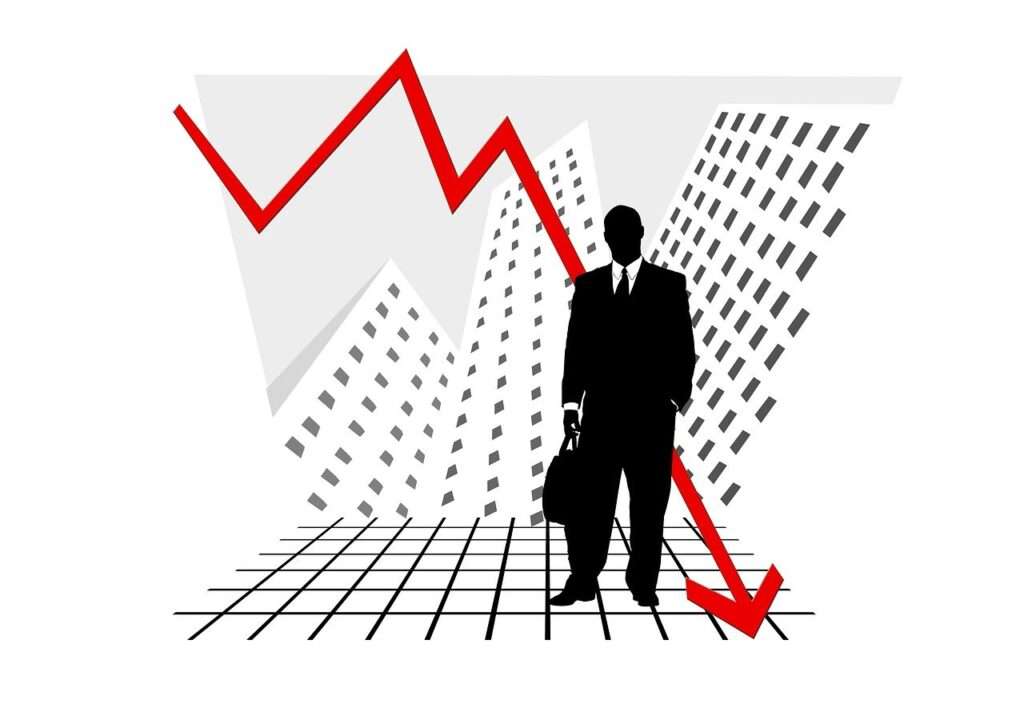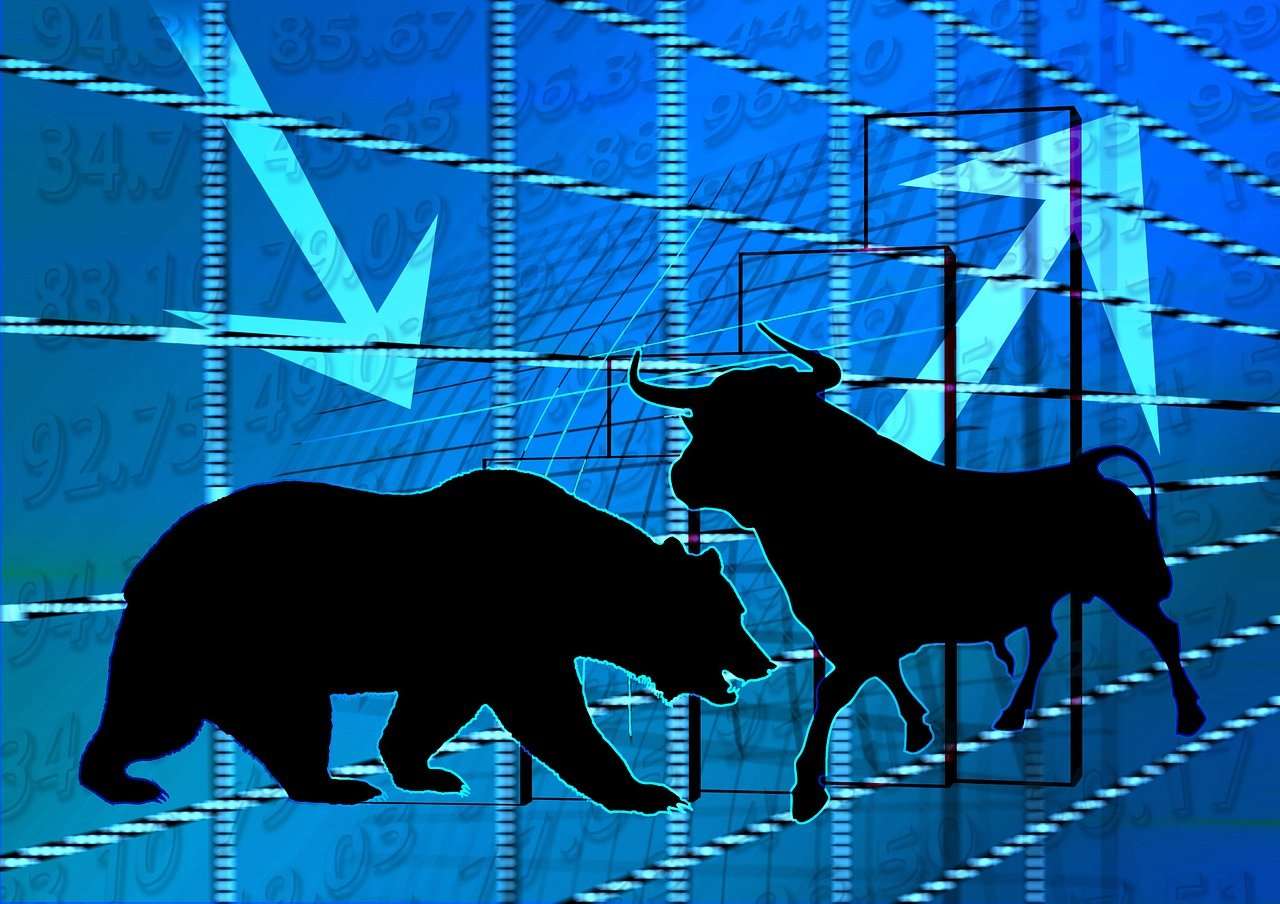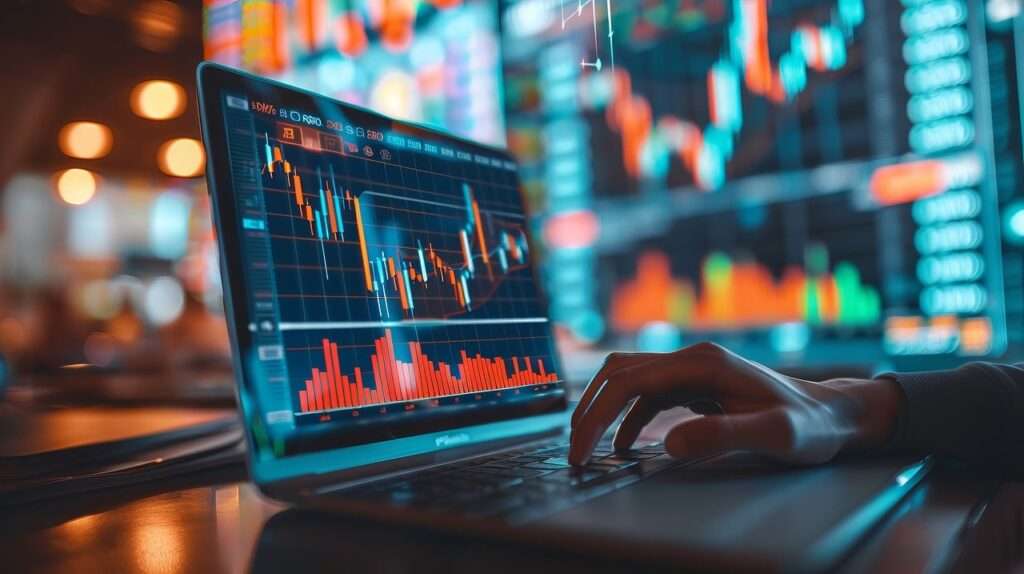
Is the world heading into World War III?
Will global financial markets survive 2024?
How should you invest during a war?
First, the Russia-Ukraine invasion shocked markets when it occurred in March 2022.
Then the Israel-Hamas war broke out in 2023, stirring greater fears of a world war.
Gold price soared to a new high exceeding $2,400 in April 2024, following the news of Iran striking Israel in its first direct attack involving missiles and drones. Israel has since retaliated. Will this escalate further?
Nostradamus’s Predictions for 2024
If you have never heard of Nostradamus before, you may be intrigued by how accurate his predictions have been across the past decades.

Nostradamus is a French astrologer who lived between 1503 and 1566. He has predicted several major world events that shocked the world through his text “Les Propheties” (“The Prophecies”).
Examples of Nostradamus Predictions that Occurred
- The rise of Adolf Hitler
- The French Revolution
- World War I & World War II
- The nuclear destruction of Hiroshima and Nagasaki
- The 911 attack in the United States
- COVID-19 pandemic
Nostradamus’s Predictions for 2024
What about 2024? Is there anything we should worry about?
It seems pretty grim if Nostradamus proves to be correct again, because events he predicted for 2024 include the following:
Climate change & Natural disasters in 2024

“The dry earth will grow more parched, and there will be great floods when it is seen.” – Les Propheties.
As we can observe, climate change has already impacted the world significantly. Unpredictable weather patterns and natural disasters have led to earthquakes, tsunamis, forest fires, volcanic eruptions and more.
2024 already been a tumultuous one thus far with the following events involving Mother Earth:
- Taiwan’s greatest earthquake in 25 years at 7.4 magnitude
- Multiple earthquakes throughout United States
- The heaviest rainfall in Dubai in 75 years
- Mount Ruang volcanic eruption in Indonesia
All these events happened within just one month in April 2024.
What lies ahead for the rest of 2024 and beyond as climate change worsens?
World War in 2024

Following the pandemic, several global military conflicts have escalated geopolitical tensions and increased the possibility of a World War.
The war between Russia and Ukraine has long started since 2014, but it escalated when Russia, under Vladimir Putin’s leadership, decided to launch dozens of missiles on Ukraine on 24 February 2022. This marks the largest attack on a European country since World War II.
Within a span of 2 years, another war shocked the world. On 7 October 2023, Hamas militants launched an unprecedented attack on Israel, sparking the Israel-Palestine war that is still ongoing as of the date of this article.
On 13 April 2024, Iran launched approximately 350 drones and missiles at Israel as a revenge mission to a suspected attack by Israel on Iran’s Syria consulate on 1st April. On 19 April, Israel struck back in retaliation. The world is now watching whether this will escalate into a greater regional conflict that magnifies global volatility.
Separately in Asia, tensions remain high between China and Taiwan, with China firmly desiring control over the latter. Many fear that a war between China and Taiwan will spark a global war, given China’s position as a global superpower and its position as a political and diplomatic partner of Russia.
The relationship between North Korea and South Korea is also another cause for concern. Seoul has been strengthening military ties with US and Japan, while North Korea has been actively developing nuclear weapons and missile programs.
Impact of War on the Economy

Wars lead to Economic Sanctions & Business Closures
Following the Russia-Ukraine war outbreak in February 2022, countries around the world have responded to Russia’s invasion of Ukraine by imposing economic sanctions on Russia. According to BBC News, the US, UK, EU, Australia, Canada and Japan have collectively imposed more than 16,500 sanctions on Russia.
Many foreign businesses withdrew their operations from Russia following the war, with major US-listed companies (such as Mcdonald’s Corp., Starbucks Corp, British American Tobacco PLC and more) shutting down their Russian operations.
The Russian ruble collapsed as a result of the sanctions and decline in export earnings, and the Russian stock market crashed by 33% (the fifth-worst plunge in their history).
Wars lead to Food Shortages, Energy Crisis & Inflation
While a war definitely impacts the economies directly involved in a conflict, depending on international trade relations, other countries across the world may also suffer from the effects that follow.
International supply chains and trading of commodities were disrupted due to the outbreak of the Russia-Ukraine war, leading to shortages of goods which resulted in a surge in food and energy prices.
Russia is a key producer of crude oil and natural gas, with pipelines connected to various areas within Europe for the supply of energy. When Ukraine was invaded, interruptions in the delivery of resources resulted in higher energy prices for Europe, causing inflation to soar to its highest in decades.
Both Russia and Ukraine also play major roles as the world’s largest exporters of agricultural products.
According to the Voice of Ukraine Newspaper, both countries collectively produced about 30% of the world’s supply of wheat and barley.
Ukraine produces more than half of the world’s supply of sunflower oil which is used for cooking, while Russia has been the world’s largest producer exporter of agricultural fertilizers such as urea and phosphate (with their total production accounting for about 15% of global annual consumption).
The significant reduction in exports from both countries impacted global food security while food prices rose, driving inflation to decades-high in many countries including the United States.
Shipping congestion and delays resulting from port interruptions around the shipping routes near the conflict zones (Black and Baltic Seas for the Russia-Ukraine war situation) contributed to higher food prices as well amidst the delayed in deliveries to various regions of the world.

How War may Impact Oil Price & Stock Market in 2024
As of 2024, a key risk that threatens market stability remains.
The global oil market stand to face greater volatility should the Israel-Palestine war escalate and spread farther throughout the Middle East (which is the largest oil exporting region in the world).
The energy sector started off the year as one of the best performers within the US stock market during Q1.
Since December 2023, crude oil price has rose about 20% towards the $85/barrel level reached during mid-April.

Source: Trading Economics
Any unexpected oil supply shock would cause soaring oil prices which will likely increase inflation further and impede economic growth.
This reduces the chances of the US Federal Reserve cutting interest rates should inflation remain high, which would throw a wet blanket on investor expectations of a rate cut that may drive the next bull run in stocks and crypto markets.
Keep in mind that the US Federal Reserve has increased interest rates for 11 times throughout 2022 and 2023, contributing to the drastic decline in stock prices throughout 2022 and the collapse of several banks in March 2023’s US banking crisis.
Higher than expected interest rates to counter inflation will lead to lower business and consumer spending, which will be a blow to household incomes as well as the health of the stock market.
How War affects Stock Market across Different Sectors

How did Russia-Ukraine War affect Stock Market?
The stock markets of the countries involve in a war often suffered upon news of an unexpected conflict.
When Russia invaded Ukraine, the Moscow stock exchange declined as much as 45%, with the biggest losers including Russian banks and oil companies.
The financial sector faced a drastic hit as it is a sector directly linked to business health and economic performance.
For example, Russia’s largest financial institution Sberbank’s share price plunged by 43%.
Russia’s state-owned gas company Gazprom’s share price fell by 35%. This company financed the construction of the Nord Stream 2 pipeline that once delivered natural gas from Russia to Germany. The pipeline now lays abandoned following Europe’s response to reduce energy dependence on external economies.
The travel and leisure sector is also among the hardest hit sectors when international conflicts arise, as travel demand slows during times of geopolitical turbulence.
Travel stocks tend to decline following news of a war. For example, the share prices of Marriott Vacations Worldwide Corp. and Norwegian Cruise Line Holdings Ltd dropped by about 30% within 4 months of the Russia-Ukraine invasion.
Additionally, stocks listed in other countries may also suffer as a result of their exposure to countries directly involved in a conflict.
Following Russia’s invasion of Ukraine, US stock exchanges have suspended or delisted the ADRs/ADSs/common stock of all US-listed Russian companies. The fund manager VanEck completely liquidated its VanEck Russia ETF (RSX) and VanEck Russia Small-Cap ETF (RSXJ), while BlackRock liquidated its iShares MSCI Russia ETF (ERUS).
How would China-Taiwan War affect Stock Market?
Should China decide to invade Taiwan to conquer the latter, US-listed Chinese stocks would suffer. Popular Chinese stocks include Alibaba, Pinduoduo Holdings, Baidu Inc and Netease.
Additionally, US companies that have high business exposure to China would also get hit. Examples include Qualcomm (which derives 63% of its revenue from China), Monolithic Power (which derives 52% of its revenue from China) and Texas Instruments (which derives more than 49% of their revenue from China). Data used are as of 30 Sept 2023.
Taiwanese stocks would also suffer a similar fate. The largest public listed company in Taiwan is the global semiconductor foundry – Taiwan Semiconductor Manufacturing Co. Ltd. (TSMC), with a market cap exceeding $600 billion.
An invasion of Taiwan would lead to China taking control of TSMC, which will have an adverse impact on its share price as TSMC would likely lose its US customers given the strained China-US relationship.
Apart from that, US companies with exposure to Taiwan will also get affected.
Nvidia Corp. (NVDA) and Advanced Micro Devices Inc. (AMD) are semiconductor companies which have benefited greatly from the rise in artificial intelligence. Both are fabless companies which outsource their chip production processes to TSMC.
The heavy reliance of these companies on TSMC causes them to be highly vulnerable to Taiwan’s relationship ties with China. As geopolitical tensions rise, several investors have proceeded to sell off their TSMC shares in fear of greater trouble ahead. This included the world renowned investor Warren Buffett which has disposed his $5 billion stake in TSMC during 2022.
If you hold any stocks with exposure to China and Taiwan, and you believe that a war between these two may eventually happen, you should have a risk management plan in place or sell off your shares before things get worse.
How to Invest During War

Invest in Safe Haven Currencies
Some investors may seek refuge in safe haven currencies such as the US dollar or the Swiss Franc.
The Swiss Franc is known as a stable currency due to Switzerland’s strong financial stability with its long history of low debt and large current account surplus.
The US dollar is the world’s primary reserve currency and is considered as a safe-haven asset due to the US’s global dominance and its position as an economic powerhouse.
During the Global Financial Crisis in 2008, the US Dollar rose in value against other world currencies although US is at the centre of the financial catastrophe itself. The same occurred when the Russia-Ukraine war broke out.
Invest in Bonds
Bond investors are paid a stream of interest payments thus bonds contain lower risk compared to stocks.
The stronger the credit rating of the bond issuer, the lower the risk of the bond for the bond investor. By choosing bonds that are backed by a strong government with low default risk, you are likely to still receive interest payments even when the economy and stock market is crashing.
While US government bonds have traditionally been considered a ‘risk-free’ asset due to the backing of the US government, investor confidence in US Treasuries have declined amid the rising US national debt level alongside its deteriorating credit ratings, coupled with a rising cost of debt servicing with US interest rates remaining high above 5%.
According to the Congressional Budget Office, US’s national debt stood at $34 trillion as of April 2024, which is approximately 99% of GDP. This is forecasted to steadily increase over the next 30 years.
If you are not confident in the US government’s capacity to rein in its debts, then it may be better to seek other countries’ high quality government bonds or alternative investments.
Invest in Defensive Stocks
For risk-averse investors that want to invest in stocks, utility stocks and healthcare stocks can be defensive plays during volatile times, as consumers will still require power connection and basic healthcare services no matter the state of the economy.
This ensures that utilities companies and healthcare companies can still generate consistent profits and cash flows, protecting their share prices against declines throughout a market crash. Such companies are usually also large and stable enough to continue paying dividends, which can offer a source of passive income for investors.
Invest in Defense Stocks
While many sectors would get hit adversely as a result of war, one sector in particular thrives on conflicts – the defense sector.
The US had spent an estimated $8 trillion on post-9/11 wars, which makes up a sizable portion of the US Gross Domestic Product.
In the latest Russia-Ukraine war and Israel-Hamas war, US also participated by offering military assistance to Ukraine and Israel, boosting spending on industrial production related to military equipment and investments in defense technology.
Investors can hedge against the effects of a war by buying defense stocks such as Lockheed Martin (the world’s largest defense company), TransDigm Group (a military aircraft parts manufacturer), AeroVironment Inc. (an unmanned aerial vehicle manufacturer) and BAE Systems (a provider of defense, aerospace and security solutions).
Invest in Assets that Hedge against Inflation
As mentioned earlier, war drives up inflation due to shortages in supply of commodities such as oil and food. Another factor contributing to inflation is that governments involved would print money to finance defense spending, this can be dangerous as it may lead to hyperinflation in which prices spiral out of control.
For example, Germany experienced hyperinflation post World War One as it financed the war through money printing. From an exchange rate of 4.2 German marks per dollar, it rose to 4,200,000,000,000 German marks per dollar by the end of 1923 – representing an astronomical inflation rate of 3,250,000% per month!
In order to hedge against inflation, real and tangible assets like oil, gold and real estate are generally favored.
Invest in Energy Stocks such as Oil & Gas Companies
Apart from defense stocks, investors can also hedge their portfolios against geopolitical conflicts by investing in energy stocks, as outlined in the section above on how wars impact energy supplies (especially if the participants of a war include energy exporters).
An increase in oil prices can translate into higher revenues and higher share prices for oil and gas companies, such as Chevron, ConocoPhillips, Exxon Mobil, Occidental Petroleum, Halliburton Co., Schlumberger Ltd. and more.
Invest in Gold
Gold is an asset that acts as a hedge against inflation due to its scarcity feature. It is also traditionally viewed as a safe haven asset amid times of global uncertainty due to its ability to preserve or gain value during times of crisis.
Since the outbreak of the Israel-Hamas war in Oct 2023, spot gold price has rose swiftly throughout the months and achieved a new all-time high exceeding $2,400 as of the date of this article.
This new high for gold was recorded during April (following Iran’s direct attack against Israel), and was accompanied alongside a significant drop in both the stock and crypto markets – signaling a clear shift in investor appetite towards lower-risk assets (a sign of a risk-off environment).
Invest in Real Estate
While not a direct beneficiary of war, real estate can also be a favorable investment during a war as investors generally seek to own tangible assets during uncertain times compared to riskier assets like stocks.
Property prices may also drop during a crisis, providing investors an opportunity to scoop up real estate at a discount.
After the war subsides, the real estate sector can benefit from increased government infrastructure spending in an effort to repair infrastructure and rebuild the economy. The key risk remaining for a property owner is if his/her property gets confiscated by the invading country or faced destruction during the invasion (which was observed in Gaza in the latest Israel-Hamas war).
Invest in Cryptocurrencies
In recent years, we also see the rise of cryptocurrencies as a preferred investment.
Cryptocurrencies can act as a potential medium of exchange should a global war ensue and national currencies lose power.
When news of Russia invading Ukraine initially came out in late February 2022, Bitcoin price fell in value from $44K to $36K as investors reacted by selling off risky assets. At the same time, inflows were directed toward gold leading to a rise in gold price.
However, Bitcoin rose swiftly back above $44K within a few weeks throughout the war as the demand for Bitcoin by Russians increased, with buyers viewing cryptocurrencies as an alternative to the traditional financial system amid the collapse of the Russian ruble.
Hence, you can also consider diversifying your traditional investments with cryptocurrencies, as long as you can accept the greater volatility associated with it (be mindful that as much as it can rose in price by 100% within 1-2 weeks, it can also drop by 50% within 1-2 days).
✅ Learn to Invest/Trade Crypto – Cryptocurrency Mastery Course:
https://thefinancialfuse.com/crypto-investment-course
Summary

The next black swan event can happen anytime – either in 2024 or beyond.
Based on what we have seen within the past few years, that have been several unpredictable events that shook the world, especially the COVID-19 pandemic which brought the whole world to a standstill for several months. Although we cannot control what happens on the earth, we can control our actions which include how we protect our investment portfolios against adverse events.
If you are risk averse and think that the world may face more chaos as predicted, it is best to stick to lower risk assets such as gold, real estate and defensive stocks that pay dividends.
If you are afford to take more risks, you can still own higher-returns and higher-risk assets such as growth stocks and cryptocurrencies, as long as you remember to diversify across asset classes and never risk more money than what you can afford. Don’t put all of your life savings into just one type of asset alone!
Note that all the information shared above are only for general knowledge and educational purposes, and do not constitute any form of investment recommendation. You should be responsible to learn how to take action for your own investments.
To learn more about investing and how to manage your own investment portfolio, check out other resources and posts below ⬇️
– Useful Links –
✅ Sign up to TheFinancialFuse newsletter for Market News, Finance Insights & Investment Analysis:
Join TheFinancialFuse newsletter community
✅ Retire Early with My Rich Future’s Financial Budgeting Toolkit
Your Retirement Planning, Budgeting & Portfolio Management Toolkit
✅ Become a Professional Investor – Stock Investment Mastery Course:
Learn to Invest like a Professional Analyst | Fundamental Analysis, Charting Analysis & Portfolio Strategies
✅ How to Get Rich with Megatrends ebook (list of 30+ stocks):
Build a Winning Investment Portfolio with Trending Stocks of the Decade
✅ Open a Brokerage Account – Invest in Global Stocks, ETFs, Unit Trusts & more:
Open your FSMOne USD Savings & Investment Account
✅ Become a Crypto Investor & Trader – Cryptocurrency Mastery Course:
Learn to Make Money with Crypto | Blockchain Analysis, Charting Analysis & Portfolio Strategies
✅ Master Trading with The Trader’s Guide Ebook
Learn to be a Better Trader with Price Action Strategies
✅ Discover the Best Stock Ideas from Professional Analysts (20% off annual membership!):
Join Seeking Alpha premium investing club
Disclaimer: All the information provided in www.thefinancialfuse.com is for educational purposes only and should not be considered financial advice, thus the author(s) of this website are not responsible for any investment decision that you make. You are encouraged to do your own research and due diligence.



